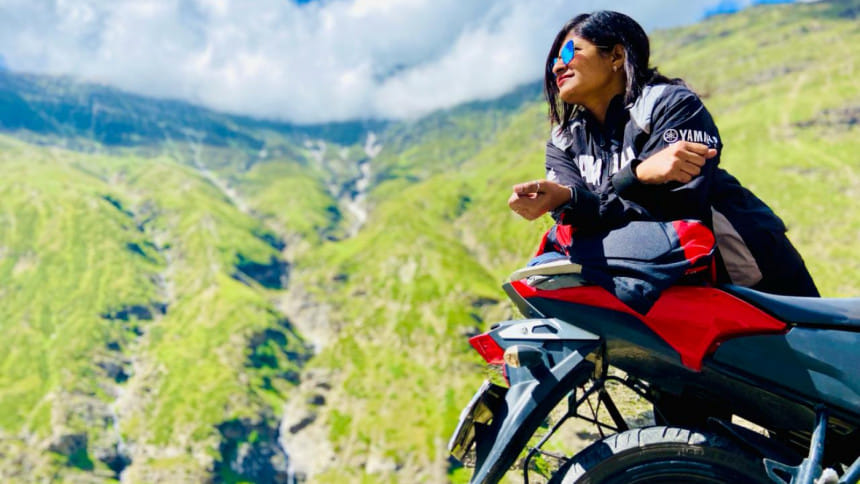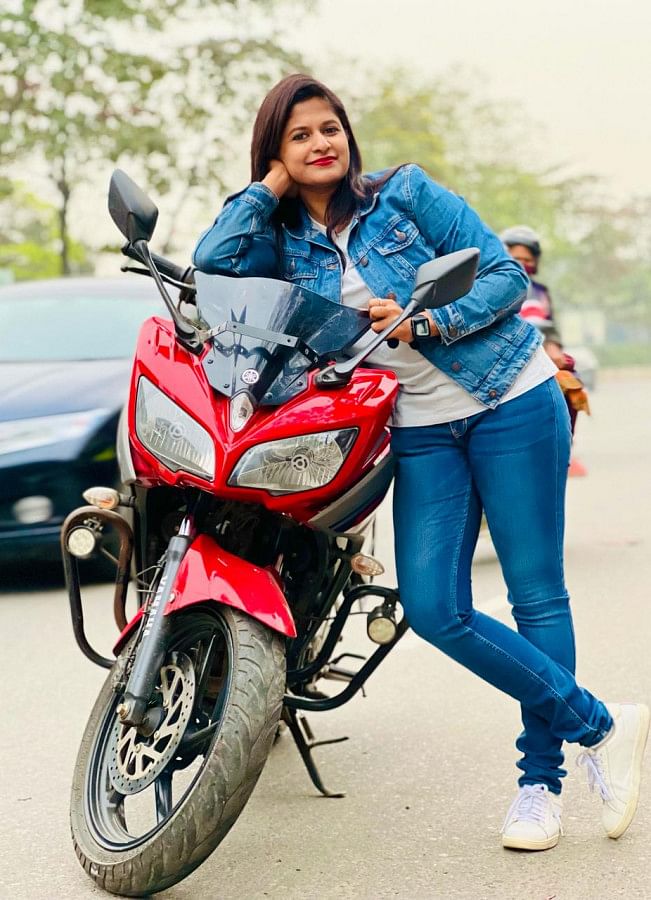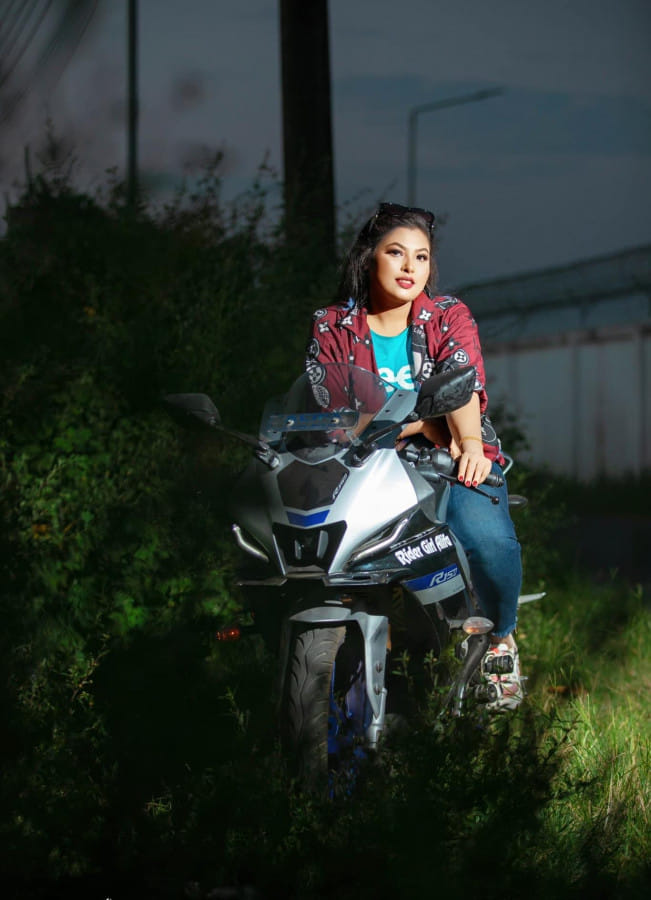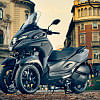Is Bangladesh witnessing a surge in female motorcycle users?

In a nation where traditional gender roles have long dictated societal norms a quiet revolution is underway on the streets of Bangladesh. In recent years, as more and more women are seizing the opportunity to use motorbikes daily, certain cultural perceptions and stereotypes are being effectively challenged.
This changing trend can be attributed to several factors. First of all, women's demand for autonomy and independence in their daily lives is increasing. Motorcycles offer a convenient and cost-effective means of travel, allowing women to navigate congested city streets and rural roads with ease.
Sadia Afrin, a textile engineer and an admin of the female biking community 'Yamaha Riders Club-Girls', recounts her journey from a novice rider to a seasoned adventurer.

"Back in 2017, I started with a humble Scooty. But as my confidence grew, I upgraded to a Yamaha Fazer v2 in 2018" she said. Despite facing initial scepticism, Sadia persevered, finding solace and empowerment in the liberty offered to her by her upgraded transportation.
"Though some individuals used to make a lot of comments, it seems like more and more people are accepting of women who ride bikes. The female bikers in our group actively participate in social welfare as members of the Yamaha Riders Club," Sadia added.
Regarding her adventures on a bike, Sadia further added that in 2022 she completed a bike tour to Manali, India and also travelled from Tetulia to Teknaf in 21 hours.
Similarly, Alifa Kashem, a restaurant owner and a trainer of Yamaha Riders Academy, fuelled by a desire for freedom and safety, obtained her motorcycle licence in 2016.
"I have fear about using public transportation as women are often harassed there," Alifa explained. "That is why I thought if I get a bike, I can travel freely. My family was completely against me riding a bike. I observed my uncles and father riding motorcycles. 'Why can't I use it if they can?' was the question I asked myself."
She also added that her husband was her biggest supporter when she made her decision to embrace biking as a mode of transportation.

The journey of both Sadia and Alifa reflects the evolving landscape of female mobility in the country, where women are being empowered by their right to move freely and independently.
In response to this growing trend, companies like ACI Motors have stepped up to support and empower female riders. As a leading distributor of Yamaha motorcycles in Bangladesh, ACI Motors recognises the importance of inclusivity and accessibility in the biking community.
In an exclusive interview with The Daily Star, Subrata Ranjan Das, Executive Director of ACI Motors, shared insights into the company's initiatives aimed at promoting female ridership.
Can you shed light on the noticeable surge in female motorcycle ridership in Bangladesh recently? What factors do you believe are behind this trend?
SRD: Bangladesh is a liberal country. Motorcycle sales are increasing day by day. Slowly, women are also including themselves in financial roles and activities. So, it is only natural that female motorcyclists will increase. Even if we go back 7 years ago, the number of female bikers was very small. Some used bikes only as a job responsibility. However, the scenario is changing. Now we see female motorcycle owners as one of the growing trends in Bangladesh.
How many female customers does Yamaha have so far? Male-female ratio?
SRD: Both motorcycles and scooters are getting popular but in the context of Bangladesh, the male-female ratio is not balanced. Bangladesh has close to 50 lakh motorcycles registered. Compared to that we only have 30 thousand female motorcycle users in my estimation. However, both motorcycles and scooters are getting popular. Yamaha has sold motorcycles to about a thousand female users so far.
What is the most popular Yamaha bike model among female bikers?
SRD: Most of the ladies prefer fewer cc bikes or scooters at first. Slowly, some of them later on switched to high-end bikes. The Yamaha R15 is popular among experienced female bike owners.
Could you provide insights into any specific initiatives or programmes ACI Motors has launched to engage and empower female riders?
SRD: We think female riders should increase and promote female riding. We have a total of 10 training centres around the country among which 9 are outside Dhaka. We have trained over two thousand female riders so far and the numbers are increasing.
The Yamaha Riders Club also has a girl wing. They regularly organise group tours and social activities. We also provide test drive opportunities at universities when we provide them sponsorships in any events.

In your view, what are some of the main challenges female motorcyclists encounter, and what can be done to overcome these obstacles?
SRD: We have a social and financial barrier when it comes to the challenges. Moreover, females also face difficulties whenever they use public transport. The challenges females face when it comes to mobility must be solved. I think banks should come forward and provide more friendly schemes when it comes to female bike users. Female users also love using scooters. Also, Bangladesh does not have a good supply chain for scooters. So, the scooter import duty can be reduced to promote female riding.
Lastly, do you have any words of advice for women who may be considering taking up motorcycle riding as a passion or means of transportation?
SRD: Personally, I think motorcycles are freedom. It gives you mobility. Be it a necessity or a passion, motorcycles are a good choice when you ride safely. There is also an opportunity to go for a long drive on a weekend to reduce stress.
Involvement in female rider communities can provide support and confidence to female riders. And if you are thinking about a place to learn, you can always come to us or any other companies as all of us are enthusiastic about providing support for our female riders. Even if you cannot afford a motorcycle, you can always learn to drive it which may prove helpful in the future.

 For all latest news, follow The Daily Star's Google News channel.
For all latest news, follow The Daily Star's Google News channel. 








Comments